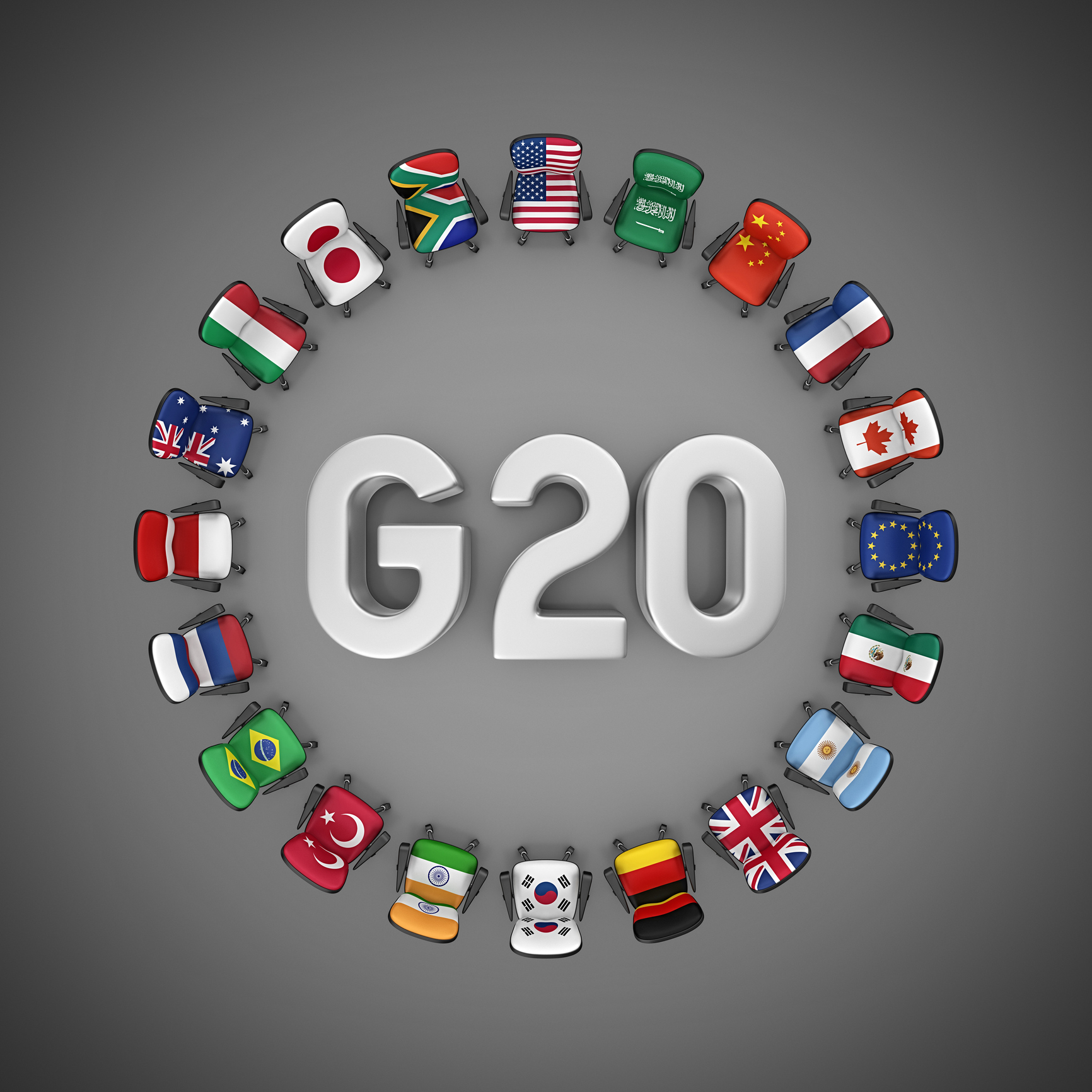
September 11, 2023
The India-Middle East-Europe Economic Corridor (IMEEC) is a significant announcement
The leaders made a collective commitment to harness digital tools and technologies to foster safe and resilient digital ecosystems
The G20 leaders announced their commitment to global food security and nutrition
The G20 is committed to collaborating with the private sector to establish inclusive, sustainable, and resilient global value chains

The 2023 G20 Summit successfully culminated in New Delhi with multiple bilateral meetings held with world leaders, overcoming deep divisions over the war in Ukraine to produce the New Delhi Declaration— a consensus document that outlines some of the main global issues.
Some of the key outcomes include the Green Development Pact that endorses high-level principles on lifestyle for sustainable development, voluntary principles of hydrogen, and the launch of the Biofuel Alliance, among other things. The G20 leaders also agreed to pursue tripling renewable energy capacity globally by 2030 and accepted the need to phase down unabated coal power but stopped short of setting major climate goals.
In addition to climate change and representation, the summit emphasised the importance of equitable international trade practices. These practices are seen as vital to ensuring fair and balanced global economic growth, reflecting the broader goals of the G20 in promoting financial stability and cooperation.
Here are some key takeaways:
Renewable Energy and Climate Change
Prime Minister Narendra Modi launched the Global Biofuel Alliance at the summit. This collaborative initiative, led by India, the United States, and Brazil, signifies a united front addressing pressing energy and economic challenges by promoting sustainable biofuels. The alliance intends to expedite the global uptake of biofuels by facilitating technology advancements, intensifying the utilization of sustainable biofuels, and shaping robust standard setting and certification through the participation of a wide spectrum of stakeholders. Moreover, it marks a historic moment as the G20 has endorsed an ambitious goal to triple global renewable energy capacity. Additionally, the G20 acknowledged the imperative of achieving an emissions peak by 2025. It recognised that limiting global warming to 1.5 degrees Celsius necessitates a substantial reduction of greenhouse gas emissions by 43% by 2030, compared to 2019.
Digital Push
The leaders made a collective commitment to harness digital tools and technologies to foster safe and resilient digital ecosystems, focusing on global financial inclusion. Their pledge encompassed various key initiatives.
Firstly, they pledged to promote responsible and inclusive use of digital technology, especially in agriculture, to support Agri-Tech startups and Micro, Small, and Medium-sized Enterprises (MSMEs). Additionally, they expressed support for establishing the Global Initiative on Digital Health (GIDH) under the World Health Organization (WHO) to develop a comprehensive digital health ecosystem while adhering to data protection regulations.
Furthermore, leaders emphasized their intent to leverage digital technologies for preserving and advancing culture and cultural heritage, emphasizing the adoption of digital frameworks to foster growth in cultural and creative sectors.
The summit highlighted the vital role of digital infrastructure in promoting economic growth and connectivity. Discussions revolved around bridging the digital divide, introducing the G20 Framework for Systems of Digital Public Infrastructure, and India’s proposal to establish the Global Digital Public Infrastructure Repository (GDPIR), serving as a repository for DPI contributions from G20 member nations and beyond.
Additionally, the summit underscored the importance of a collaborative approach to advancing digital infrastructure globally. This included discussions on the potential macro-financial implications of Central Bank Digital Currencies (CBDCs) on cross-border payments and the international monetary and financial system.
Boosting Trade
The India-Middle East-Europe Economic Corridor (IMEEC) is a significant announcement about an infrastructure project to enhance trade and connectivity between India, the Middle East, and Europe. This corridor encompasses various modes of transportation, including railways and shipping routes. Furthermore, the G20 has reiterated its commitment to a rules-based, non-discriminatory, fair, open, inclusive, equitable, sustainable, and transparent multilateral trading system for international trade. The resolution affirms their dedication to supporting policies that harness the potential of trade and investment as drivers of growth and prosperity for all.
Food Security
Observing that the rising commodity prices, including food and energy prices, are contributing to cost-of-living pressures, the G20 leaders announced their commitment to global food security and nutrition for all in line with the G20 Deccan High-Level Principles on Food Security and Nutrition 2023. In the G20 New Delhi Leaders’ Declaration, the grouping leaders expressed their commitment towards eliminating hunger and malnutrition. The leaders also emphasized “the importance of increasing access to, availability, and efficient use of fertilizer and agricultural inputs, including through strengthening local fertilizer production, and to improve soil health.
The G20 is committed to collaborating with the private sector to establish inclusive, sustainable, and resilient global value chains. Additionally, it pledges to assist developing countries in advancing within these value chains. Furthermore, the G20 will actively tackle debt vulnerabilities in developing nations and uphold its “no one left behind” policy. The G20 nations also resolved to remain committed to strengthening global health architecture for pandemic prevention, preparedness and response through enhanced collaboration between Finance and Health Ministries.
The G20 Summit showcased its adaptability in addressing contemporary global issues. Its outcomes are poised to shape international policies and collaborations, signalling a commitment to a sustainable, equitable, and interconnected global future.